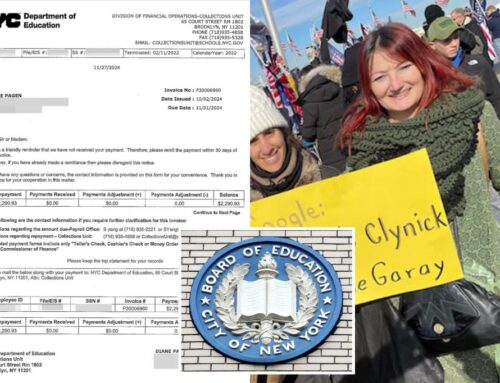In this city there are 297,611 people crammed into apartments with too many others.* Policy researchers call this “severe overcrowding.” It is also known as “doubling up”—sharing an apartment meant for one family with other families who need their own apartment too, but can’t afford it. Sometimes these are relatives or friends. Often they are complete strangers.
You might think that living this way is nothing more than an inconvenience. Waiting a long time for the bathroom, or having no place to do homework. It’s far worse than that.
Last week, we were visited in our social work department by an upset mother and her seven year old daughter. The mother, Alicia** suspected that her daughter Lourdes***, age 7, had been molested.
Lourdes had told the doctor that she’d been touched “down there” by a man who lives with the family. She was alone in her room, when the man came in and convinced her to let him show her where her babies will come from when she grows up.
The molester lives with them because Lourdes’ mother cannot pay a market rate rent. So she “rents” one bedroom in a three bedroom apartment from Alicia’s brother and his wife (they have the second bedroom which they share with their two children). In the third bedroom live two other men who pay the rest of the rent—one is the molester.
Being poor in this city used to mean wearing hand-me-downs or sharing one bicycle between two siblings; not having to share your home with someone you barely know just to keep a roof over you. Being a poor kid in New York has become more dangerous. Doubling up must be talked about in these terms.
To eliminate doubling up, there has to be policy commitment to provide one home per family. Doubled up households are cluttered, chaotic, and contentious. None of these negatives, however, makes the case for adequate housing more than a doubled up child’s increased risk of being molested. The molestations are as overt as what happened to Lourdes, or they can be subtle, such as when an adult “accidentally” keeps walking in on a child when she is getting dressed.
Confronting this crisis will also require policymakers to give more direct aid to families, instead of steadily less as they have been for since the 1980’s. Any money spent to make sure every family has their own space will be offset by the savings that come from having healthy, well adjusted children who grow up safe. This city also has a large child welfare infrastructure that has not addressed how doubling up harms children. Over a quarter of a million New Yorkers are living doubled up, and it is very expensive to intervene once a child is traumatized. That makes doubling up a public health emergency.
*The Furman Center’s 2008 State of NYC Housing and Neighborhoods Survey provided this statistic.
**Not her real name.
***Not her real name.





Leave A Comment